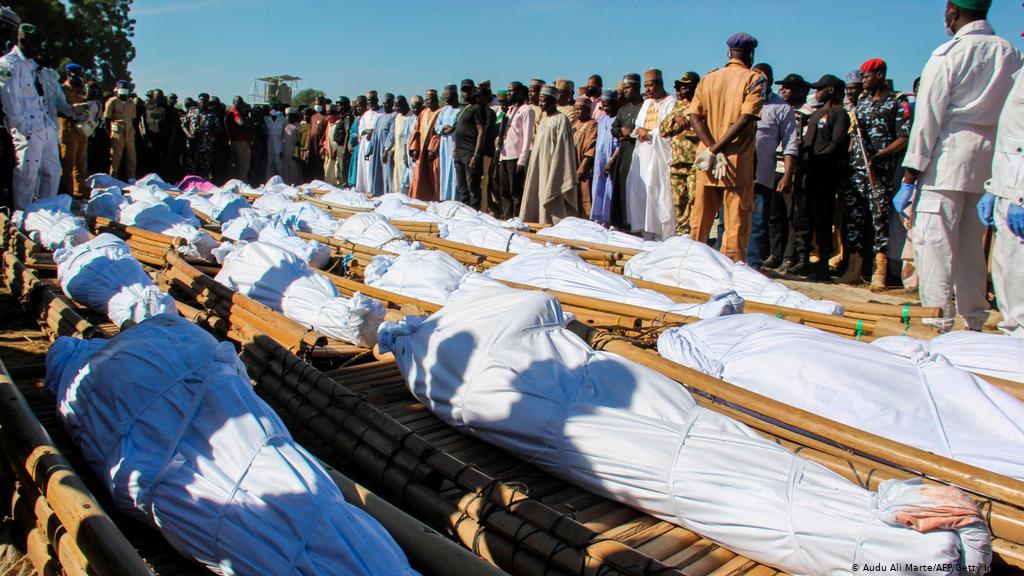On the martyred rice farmers in Borno (II)
Martyrs? Yes. Martyrs they are. They are martyrs because that exactly is their representation and description in Islamic hermeneutics. He is a martyr- “one who dies in a plague; he who dies of intestinal ailments; he who dies of drowning, he who dies under a collapsed building, and he who dies as a martyr in […]

Martyrs? Yes. Martyrs they are. They are martyrs because that exactly is their representation and description in Islamic hermeneutics. He is a martyr- “one who dies in a plague; he who dies of intestinal ailments; he who dies of drowning, he who dies under a collapsed building, and he who dies as a martyr in jihad”. Yes. He is a martyr – ‘he who dies while defending his own possessions; he dies while defending his own life or that of others; he who dies while guarding his own faith”.
Consequent upon a review of the sources from which the above perspectives on martyrdom are evident, Imam Ibn Hajar al-Asqalani states: “we can conclude from these traditions that martyrs are of two types: Those who are recognized as martyrs in this world, and those who are recognized as martyrs only in the Hereafter. A martyr recognized in this world is one who has died fighting in the cause of Almighty without having retreated from the battle. But those who are recognized only in the Hereafter are those upon whom the laws of martyrdom are not applicable in this world, although they merit rewards of martyrdom.”
But when I beheld the sight of the dead farmers as they were laid on the ground preparatory to their burial, I remembered their widows, their sisters, their daughters, their sons and mothers. I remember their orphanated children. I knew his widow would be looking up to the skies as if in search of the “eyes” of the divine; I knew that their bereaved mothers would be holding their heads as if the loss they experience is restricted to that part of their physiology. Then it dawned on me one more time that happiness and sadness have no faith or creed; that the sense of bereavement that families of victims of atrocious acts would feel at this time is a pointer to the universality of our humanity; that without grief humans, and ironically too, hardly exist; that, in line with Arthur Schopenhauer, “the deep pain that is felt at the death of every friendly soul arises from the feeling that there is in every individual something which is inexpressible, peculiar to him or her alone, and is, therefore, absolutely and irretrievably lost at his death; that there are things that we do not want to happen but which we have to accept, things we do not want to know but which we have to learn, and people we cannot live without but, in circumstances like this, have to let go.
But could the murder of the farmers be a revenge for an injustice or wrong perpetrated by Statehood in Nigeria against the group? Is there a warrant in Islamic law that could have validated the incident? Again, careful perusal of Islamic law shows that the Almighty takes exception to wanton destruction of life. The day Hamza, the Uncle of Prophet Muhammad (SAW) was killed by Wahshi, the grief became so much on the Prophet’s heart that he said: “I am definitely going to kill thirty people in vengeance”. But the Almighty soon revealed a verse which forbids the Prophet from carrying out his threat. The verse reads: “If you have to retaliate, let your retaliation be commensurate with the wrong that was done to you; but if you endure with patience, the best reward indeed is for those who endure with patience”. Our Prophet eventually pardoned Washshi; the latter later voluntarily accepted Islam.
While we mourn the farmers and other innocent souls that have been lost to the state of insecurity that our country is witnessing now, I thought this occasion provides an opportunity for soul-searching. We should raise hard questions perhaps through that we might chance upon solutions to the many challenges facing us as a nation. Why is it that more than a decade now, the Nigerian state has been unable to permanently put an end to the Boko Haram insurgency in northeast Nigeria? To what extent has our nation’s security infrastructure been reinvented to confront this challenge and others across the nation? Is it true that a particular state governor in the northeast now prefers to run the affairs of his state from Abuja in order to insulate himself and his family against the threats of the Boko Haram and the bandits?
While we mourn all those who were martyred by the agents of Beelzebub last weekend in Borno State, I pray, once again, that they meet with the eternal Rahmah of their Creator. I pray that their circumstance becomes like that of those who, while they are being mourned by their friends, angels are rejoicing for having had the opportunity of ushering them into celestial bliss and from ‘behind the veil’.
